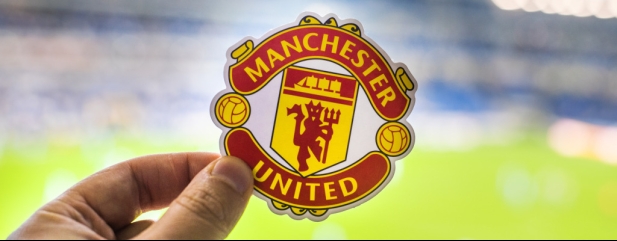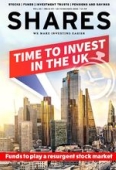Archived article
Please note that tax, investment, pension and ISA rules can change and the information and any views contained in this article may now be inaccurate.
Why isn’t Manchester United worth more than $6 billion?

Amid all the frenzied coverage of a possible takeover of Manchester United (MANU:NYSE) – one question occurred to this observer. Why isn’t it worth more than the reported price tag of $6 billion slapped on the club by current owners the Glazers?
For now, it looks as if the Qataris and their main rival bidder – the owner of chemicals firm INEOS, Jim Ratcliffe – are unwilling to meet this asking price. Yet Manchester United is a huge brand which transcends the world of football. According to consultancy Brand Finance’s Football 50 rankings in 2022 it comes in at number five among all global football clubs and it has often been higher than that on the list.
Think about the level of loyalty displayed by your average football fan – it arguably exceeds even that of the fandom of devotees of the Star Wars franchise. Even if the product isn’t up to scratch most football supporters are fans for life and will grimly stick with their team through periods of underperformance. Tapping into this can be extremely lucrative – either by selling match tickets and merchandise or by attracting sponsorship from businesses which want to be associated with the brand.
Added to this, sport is one of the few categories which guarantees a live TV audience and broadcasting rights for the Premier League run into the billions.
Manchester United hasn’t delivered on the pitch for years when you compare the trophies won in the last decade with the haul of silverware secured under legendary manager Alex Ferguson before his retirement in 2013. But the club has proved rather more adept at exploiting commercial opportunities.
Why then is Manchester United potentially worth less than cardboard box firm Smurfit Kappa (SKG)?
The answer is two-fold – and is revealing of the truth that football clubs are not typically good investments for ordinary punters or those trying to buy them outright.
First, ownership of a football club conveys certain responsibilities and is subject to regulatory pressure from the various football authorities – Manchester United’s city rivals at the Etihad are a good example.
Manchester City is facing more than 100 separate charges from the Premier League which could, at the more extreme end, result in its expulsion from the competition – severely undermining its commercial value.
Fans can also bring significant pressure to bear if they feel owners are not acting in their interest. Just witness the rapid unravelling of the European Super League proposals put forward by several big clubs including Manchester United in 2021.
The other key factor is the amount of money which goes towards playing talent in a competitive market – both in the form of transfer fees and wages. Injuries and loss of form mean there is no guarantee player acquisitions will even work out.
Despite spending more than £1 billion on players over the last 10 years, Manchester United arguably needs further investment in the playing squad to truly compete at the very top of the European game. The training facilities and the stadium infrastructure are also in need of an upgrade.
Important information:
These articles are provided by Shares magazine which is published by AJ Bell Media, a part of AJ Bell. Shares is not written by AJ Bell.
Shares is provided for your general information and use and is not a personal recommendation to invest. It is not intended to be relied upon by you in making or not making any investment decisions. The investments referred to in these articles will not be suitable for all investors. If in doubt please seek appropriate independent financial advice.
Investors acting on the information in these articles do so at their own risk and AJ Bell Media and its staff do not accept liability for losses suffered by investors as a result of their investment decisions.
Issue contents
Editor's View
Feature
- Revealing the bargain stocks which may have been left behind
- Time to invest in the UK: funds to play a resurgent stock market
- Discover the funds and stocks which pay monthly and quarterly incomes
- The £5 investment challenge. Get on board and invest a little bit more each month
- Emerging markets: a cold winter for China and growth back in favour
- Discover the emerging markets stocks picked out as growth champions
Great Ideas
News
- Big banks fail to live up to the market’s high expectations
- How US retail titans Walmart and Home Depot disappointed investors
- Darktrace calls in EY as it mounts fight against big fraud claims
- Why billionaire Ken Griffin is backing the Boohoo recovery plan
- LADbible owner LBG Media more than doubles after strong trading and broker optimism
- Trainline shares down 30% in six months with recovery derailed by strikes

 magazine
magazine








